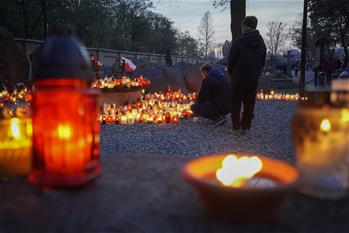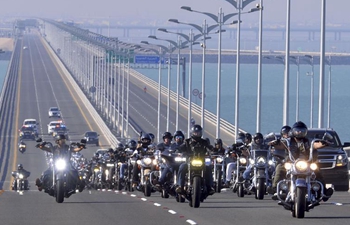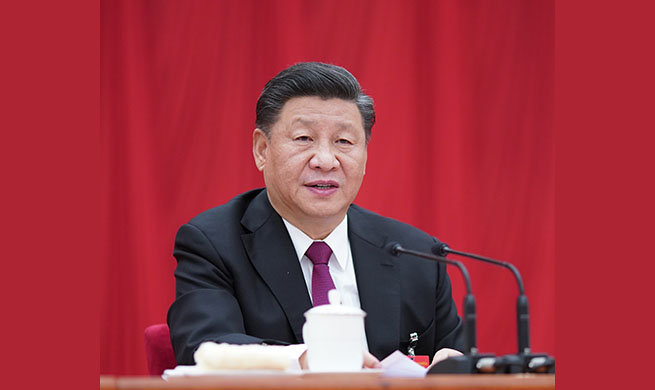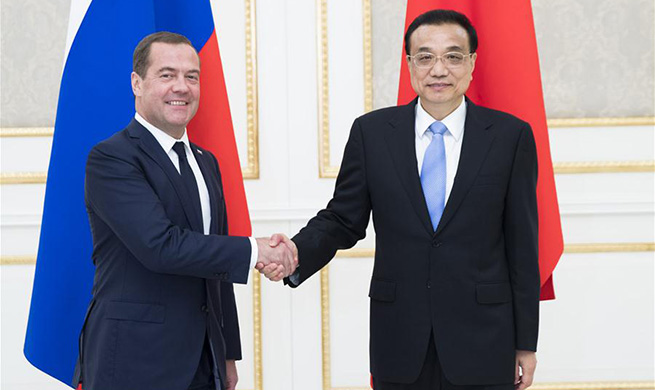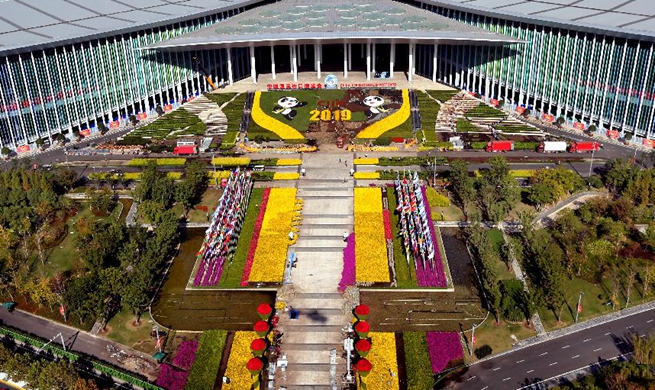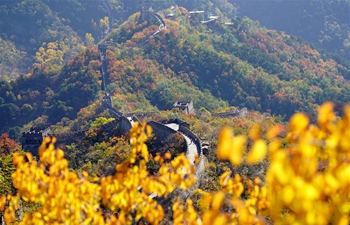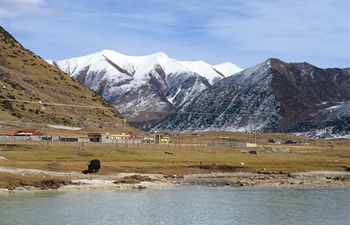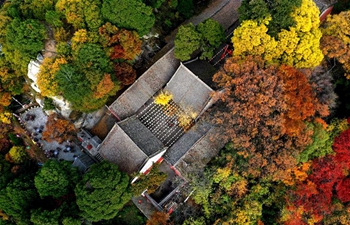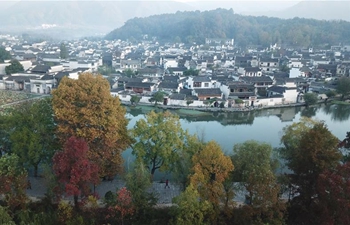BANGKOK, Nov. 2 (Xinhua) -- Leaders of the 10 member states of the Association of Southeast Asian Nations (ASEAN) and their six free-trade partners will meet here Monday for their third summit on the proposed free-trade pact Regional Comprehensive Economic Partnership (RCEP) on the sidelines of the 35th ASEAN summit and related summits.
The leaders will issue a joint statement, widely expected as a major breakthrough on finalizing the deal, amid urgent calls for an agreement to be reached within 2019 and signed next year.
Launched in 2012 with the goal to deepen economic relationship among the 16 Asia-Pacific nations, the RCEP talks were originally planned to be finished by 2015 but have repeatedly missed the deadline.
Aimed at removing intra-region trade barriers, creating and optimizing a liberal investment climate and expanding trade of services, the plan for the RCEP was first mooted at the 18th ASEAN Economic Ministers Meeting in Myanmar in 2011, where the economic leaders, eyeing a comprehensive free trade agreement with its dialogue partners, brought forward a draft on building the RCEP.
At the 19th ASEAN summit held in November 2011 in Bali, Indonesia, the leaders officially endorsed the RCEP and adopted an ASEAN Framework for RCEP, outlining the general principles for establishing the RCEP.
Talks on the RCEP encountered many difficulties including lack of an existing comprehensive economic agreements among some participating nations, a wide gap in political and economic conditions in participating nations and some countries' conservative attitude in market access.
A total of 28 rounds of talks have been held until today after leaders of the 16 countries declared the start of negotiations on the sidelines of the 21st ASEAN Summit in Phnom Penh, Cambodia in November 2012.
Following are some of the highlights during the negotiation process:
The first round of negotiations took place in May 2013 in Bandar Seri Begawan, Brunei, on the heels of the 22nd ASEAN Summit, as officials of the 16 governments participating in the RCEP gathered to start detailed negotiations.
The second round of RCEP negotiations was held in September 2013 in Australia, where delegations primarily focused on trade in goods, services and investment.
At the third round of the RCEP negotiations in Kuala Lumpur, Malaysia, in January 2014, participating countries had an intensive exchange of views to advance the negotiations while continuing technical work on trade in goods, services and investment.
The fourth round of negotiations was held in April 2014 in Nanning, China, with a focus on tariff concessions and service and investment liberalization. The fifth round of talks held in Singapore in June 2014 discussed a framework for tariff bargaining and reducing non-tariff barriers, such as sanitary measures and customs formalities.
During the first five rounds of talks, seven working groups were established for detailed cooperation. The groups cover goods and service trade, investment, economic and technological cooperation, intellectual property rights, competition policies and dispute settlement.
At the sixth round of talks held on Dec. 1-5, 2014 in New Delhi, India, the Japanese side asked to set up a workshop on e-Commerce.
In 2015, four rounds of talks were held, with the tenth round held in October in Busan, South Korea convening the first region-wide stakeholder meeting gathering government officials and business representatives. A seminar on e-Commerce was also held.
Six rounds of talks were held in 2016 and five in 2017. In November 2017, the first RCEP summit was held in the Philippine capital Manila with the leaders calling for "maximum efforts and flexibility" in overcoming challenges to ensure an early conclusion of the talks.
Four rounds of talks were held in 2018 and Singapore hosted the second RCEP summit in November that year, with the leaders reaffirming their commitment to "deliver on the expeditious conclusion of the RCEP amid current headwinds in global economy."
Talks accelerated in 2019. In June, ASEAN leaders reiterated their strong commitment to concluding the RCEP negotiations within the year to reinvigorate international trade at their 34th Summit in Bangkok.
Positive progress was made during the 27th round of talks in China's Zhengzhou in July as participants exchanged views on issues including trade of goods and services, investment, rules of origin, trade remedy measures, intellectual property rights as well as e-Commerce. Chinese officials said after the meeting that China will work with all sides involved to push for completing the negotiations within the year.
The 28th round of negotiations in Da Nang, Vietnam in September was "very fruitful" and led to the conclusion of 13 of the 20 chapters in the proposed free trade agreement, Thai Commerce Ministry said after the meeting, promising to push for a conclusion of negotiations on all chapters within Thai's ASEAN chairmanship of 2019.
Since October, ministers and negotiators from the 16 countries have been meeting intensively in Bangkok trying to finalise the last remaining chapters of the talks.
As the latest development, the trade ministers failed to reach an agreement at their meeting on Friday (Nov. 1), as talks got stuck on the last two chapters involving key fields including tariffs, trade in services, market access and investment, the Bangkok Post reported Saturday citing a Thai negotiator.
Negotiations will continue on Saturday in an attempt to put the final touches on the joint statement to be announced at Monday's summit, the Bangkok Post report said.
The RCEP comprises 10 ASEAN member states, namely Brunei, Cambodia, Indonesia, Laos, Malaysia, Myanmar, Philippines, Singapore, Thailand, Vietnam, together with their six free-trade partners which are China, Japan, South Korea, India, Australia and New Zealand.
Once signed, the RCEP will form a free-trade area covering about half of the world's population, and accounting for 32.2 percent of global GDP, 29.1 percent of global trade and 32.5 percent of global investment inflows.


